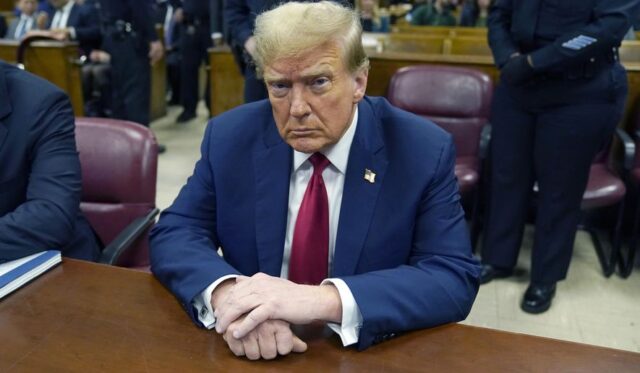A federal judge in the U.S. has ruled in favor of former President Donald Trump’s move to use a wartime law in carrying out accelerated deportations. The ruling gives legal support to Trump’s tough immigration policy as he attempts to return to the White House.
The law in question—Section 212(f) of the Immigration and Nationality Act—is what empowers the U.S. president to block or exclude non-citizens from entering the U.S. if their presence would harm national interest. Trump had made use of this legislation during his presidency and now plans to tap into it again should he be re-elected.
The judge said the law was broad enough for Trump to act quickly, especially in the context of what he described as an “immigration emergency.” This has been denounced as a possible path toward wholesale deportations with no sufficient hearings or judicial review.
In 2018, Trump employed the same legal provision to bar travel from a number of Muslim nations, deeming it an action to safeguard national security. That move incited international demonstrations and was later affirmed by the U.S. Supreme Court. Trump and his supports are now employing the same legal footing to justify mass deportation operations along the U.S.-Mexico border.
The ruling came following a lawsuit challenging Trump’s legal authority to deport people without trial through wartime powers. The judge, however, clarified that the president has the ability to act in times of emergencies if it is found suitable for national security.
Trump’s administration responded positively, saying that the move opens the door for closer border control. They claim that illegal immigration has taken over America’s cities and caused rising crime, which they argue justifies taking emergency measures.
But human rights groups widely condemn the move. They warn that giving presidents such powers is a dangerous precedent and will be abused. They fear this will provide future administrations with an easy means of sidestepping legal process and deporting people hastily.
Legal experts say this ruling will change the approach of future presidents to immigration. If not overturned, it can enable any future president to declare an emergency and act without congressional approval.
All in all, the judge’s argument on behalf of Trump’s interpretation of war law has set up fresh debate about immigration, human rights, and executive power. As elections come closer, the subject is certain to be a major talking point across the United States.





























